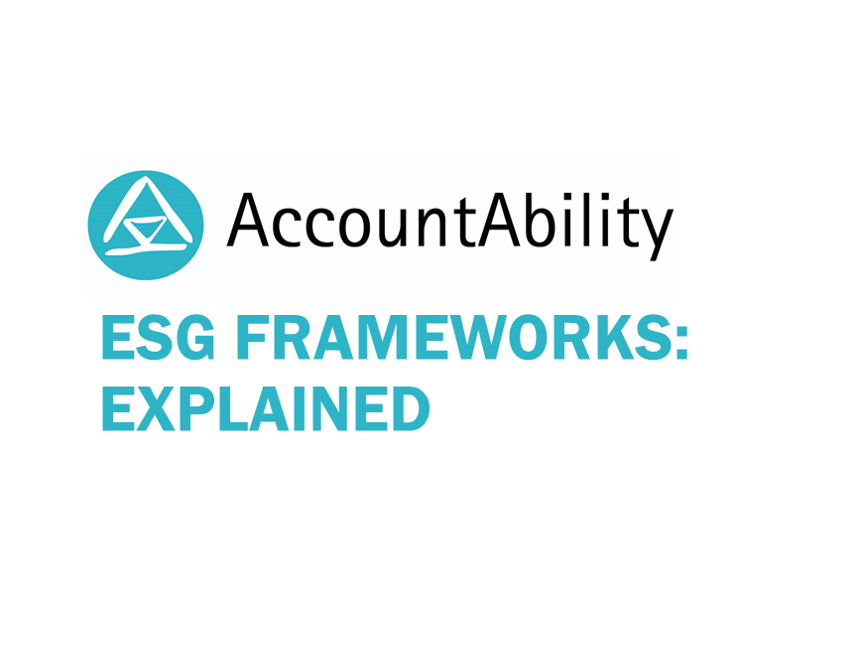ESG Frameworks Explained - An Overview of the Sustainability Reporting Ecosystem

Is your organization prepared to develop a research-informed, framework-aligned ESG report for the 2021 reporting cycle?
The ESG Reporting landscape can seem overwhelming - particularly for those organizations just starting their sustainability journey looking to navigate the standards and frameworks ecosystem.
As a World Economic Forum (WEF)-recognized Framework Developer in the space, AccountAbility is well versed in the nuances of the different frameworks companies may align to in their reporting. To ease the reporting process, we have prepared a "cheat sheet" outlining some of the different ESG Frameworks in this broader sustainability ecosystem.
Voluntary Disclosure Frameworks
- CDP - Global disclosure program that enables participants to measure and manage their environmental impacts and link environmental integrity, fiduciary duty, and public interest so companies, investors, and other global stakeholders can benchmark performance and make better-informed decisions on climate actions.
- Dow Jones Sustainability Indexes (DJSI) - An index of top-performing companies in terms of economic, environmental, and social criteria, which serves as benchmarks for investors. Only top-ranked companies within each industry are selected for inclusion in the DJSI.
- Global Real Estate Sustainability Benchmark (GRESB) - Validates, scores, and benchmarks ESG performance data - with a particular focus on real estate funds and property companies.
Guidance Frameworks
- Global Reporting Initiative (GRI) - Highly specific disclosure guidelines and requirements for compliant non-financial sustainability reporting on economic, environmental, and social performance areas. The standards are modular and can be used in a selective fashion to meet the desired compliance level and disclosure needs of the reporting organization.
- Sustainability Accounting Standards Board (SASB) - Sustainability accounting standards focused on known trends and uncertainties that are reasonably likely to affect the financial condition or operating performance of a company.
- Task Force on Climate-related Financial Disclosures (TCFD) - Comparable and consistent disclosures used to demonstrate corporate climate change risk assessment, scenario planning, and resilience. Unlike other environmental reporting initiatives, TCFD requires organizations to report on their response to environmental pressures, rather than their impact on the environment.
Third-Party Aggregators
- Bloomberg Terminal ESG Analysis - Aggregated summary of a company’s ESG performance and risk, both historically and relative to peers. The ranking and ratings measure transparency and are gathered from Bloomberg’s proprietary research as well as third-party ESG data disclosure agencies.
- MSCI - Comprehensive fixed income risk and performance analytics based on trends across sectors and regions that help investors identify risks and opportunities, pinpoint outliers, and focus on key ESG performance drivers.
- Sustainalytics - ESG and corporate governance research and rankings that measure exposure to and management of material ESG risks, specifically considering three dimensions: preparedness, disclosure, and performance.